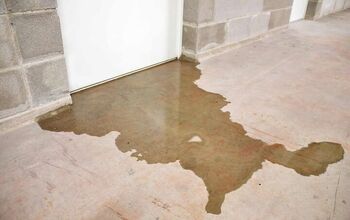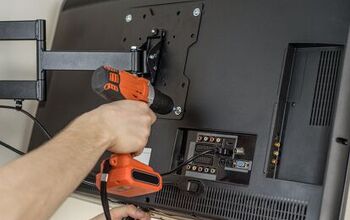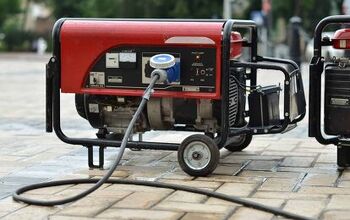Why Is The Ground Wire Hot On My Electric Fence?

Ground wires can be tricky. And they’re dangerous if they overheat. So, why do ground wires get hot on an electric fence? Better yet, is there anything you can do about it? Here’s what you need to know.
The flow of electricity inside your fence depends on a ground wire to complete the circuit. That means powerful energy constantly bombards the lines. So, your system could have a leak that’s making the wires too hot. Or there could be a problem with the installation.
Do You Need Fence Installation or Repair Services?
Get free, zero-commitment quotes from pro contractors near you.

What Causes a Ground Wire to Overheat?
Ground wires can heat up for several reasons, including a poor connection. When your wires aren’t correctly connected, the electricity can’t flow through the grid. So, grounding wires get hot if you don’t repair the link. And prolonged exposure to high heat can do irreversible damage to your electric fence.
DID YOU KNOW: Using the wrong wires can also cause excessive heat within your electrical system.
Signs of a Hot Ground Wire
You can tell whether your ground wires are too hot or not. And you don’t have to spend money on a professional assessment either. Begin by locating the grounding wire in your fence. It’s usually bare copper or light green with a yellow stripe. But don’t touch it because it could burn or shock you on contact. Look for these symptoms of a hot ground wire instead:
- Electrical Components Function Erratically
- Slipping or Burned Out Switches
- Flickering Lights or Sensors
- Difficulty Starting or Stopping
It can cause significant problems if the ground wire for your electric fence gets too hot. Fortunately, you won’t have to endure a burned electrical smell inside the house. However, you might need to repair, replace, or upgrade your electric panel to accommodate more power.
TIP: Ask an electrician to determine the source of your problems with a multimeter and probe technique.
What Can You Do About Hot Ground Wires?
Don’t let the ground wire in your electric fence get too hot. It could melt other cables and break your system. Learn how to protect your investment and maintain the cables through every season. And start by installing wiring insulation to help shield components from high heat or low temperatures.
While you’re at it, make sure the shield sleeve materials are flameproof. They should be able to withstand temperatures of 250°F or more. So, reach out to an expert for product suggestions. Or talk to your landlord about upgrades if you rent.
Remember that you might have to repair or replace fence components if the ground wire stays hot for too long. That means it’s best to shut down the system if you suspect a problem. Then, avoid contact with the wires until you’ve taken the necessary precautions.
FACT: You can’t do electrical work without a license in some states. So, check your local laws.
Will the Ground Wire on an Electric Fence Shock You?
The ground wire on an electric fence can shock you if you get too close. And if you touch a hot wire and the ground wire simultaneously, you could get electrocuted. Electric fencing isn’t always the safest way to protect your property. But nobody will get hurt if the system functions correctly and everyone practices due diligence.
Electric fences are supposed to last all year long, regardless of the weather or temperature. In other words, hot ground wires aren’t the product of high heat outside. And cold wires don’t mean there’s no electricity in the line. You can still shock yourself despite the fence’s environment if electricity runs through the grid.
Safely Maintain Your Electric Fence
Owning an electric fence is a good thing because it helps protect your property. But fencing with disconnected wires can be dangerous. And while you don’t have to fix it yourself, you can’t ignore the problem. Prolonged heat in your grid can melt components, fry connectors, and ruin your investment.
Instead of ignoring the issues, test the ground wires periodically. Look for signs of trouble and hire an electrician if the hiccups seem overwhelming. As a savvy homeowner, it’s always better to maintain electric fences than neglect them altogether.
Do You Need Fence Installation or Repair Services?
Get free, zero-commitment quotes from pro contractors near you.

Related Questions
Should Electric Fence Ground Wire Be Insulated?
You can cut power leakage with wire insulation. First, connect the steel rods to the ground terminal on the energizer. Then, check the connections to ensure the adequate flow of energy. Those steps not only ensure the fence’s efficiency but also protect your system from damage and loved ones from injury.
What Happens When Ground Wires Overheat?
Excess heat can travel through your electrical grid because most components are conductors. Eventually, the heat can reach your connections and cause significant disruptions in the grid. For example, hot wires can melt the outlets in your home or outbuildings. And if that happens, none of your outlets will work.Furthermore, overheated ground wires can damage your electrical panel. If left unattended, hot cables may cause a fire or explosion. And you must replace any damage caused by melted wires with new components. But that can be an expensive undertaking when you’re not expecting the bill.
According to experts, the plastic insulation and jacketing around wires determine how hot those wires can get. On average, electrical grids can reach temperatures of up to 194°F. However, most electricians recommended not letting your grid get hotter than 175°F.
Does Heating a Wire Damage It?Fortunately, excessive heat in your electric fence won’t affect the copper conductors in the wire. That’s because copper can withstand higher temperatures than plastic. So, the plastic insulation and jacketing around the wires are most at risk. They can only handle temperatures of less than 194°F, which means they can melt quickly with a bad connection.
Related Guides

Tiffany Nichols specializes in aesthetics, design, marketing, and manufacturing. She's a copywriter and editor for several home renovation companies in the U.S. and works alongside some of the biggest names in the industry. Her hobbies include architecture, art, mental health, and fashion.
More by Tiffany Nichols













![10 Best Zero Turn Mowers – [2022 Reviews & Ultimate Buyer's Guide]](https://cdn-fastly.upgradedhome.com/media/2023/07/31/9070522/10-best-zero-turn-mowers-2022-reviews-ultimate-buyer-s-guide.jpg?size=350x220)













